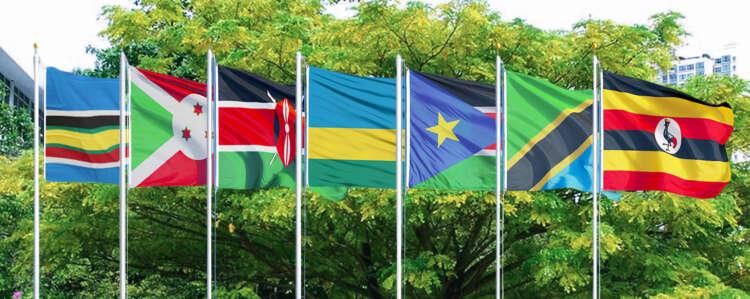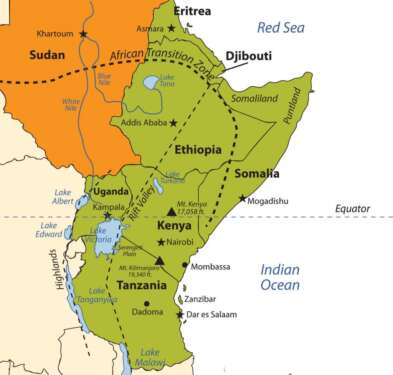- Kenya’s business conditions stabilised in April but heavy rains a concern for Q2
- Floods Sweep Away Billions in Economic Gains in Kenya and Tanzania
- Chapa Founder’s insight: Africa’s startup evolution mirrors China’s growth trajectory
- Sustainable solutions: AIM Congress 2024 focuses on agriculture, health and investment
- AIM Global Foundation and Korea-based LB Investment bold venture begins
- Strong shilling boosts investor confidence as Nairobi bourse picks in Q1
- Inside Africa’s Multi-Billion Dollar Creative Economy
- UAE support paves the way for the set up of Madagascar’s first gold refinery plant
Year: 2020
In the words of Charles Dickens these are “the best of times and the worst of times” – the financial world is suffering severe labour pains but is also pregnant with possibilities. It appears that the East African business world is breaking early for Christmas but I am sure that all of us are desperately trying to predict the future for both our local economies and the world in general. Here in Uganda we are seeing a significant increase in Covid-19 cases which is, of course, in no way linked to the frantic and socially un-distanced political campaigns currently taking place!! Frankly nothing is certain except considerable uncertainty.
So if there aren´t any certainties then what are the likely economic and consumer trends for 2021?
Economic Trends
It is inarguable that a world economy that was already approaching its peak pre-Covid-19 period has moved rapidly into recession. The effects …
Following COVID-19 pandemic-related travel restrictions, it is predicted that up to millions of African jobs will be lost in the aviation and aviation-related industries, according to a report by Air Transport Action Group. The report revealed that 4.5 million jobs out of Africa’s 7.7 million aviation-related employment would be lost. Up to 172,000 jobs in the aviation sector alone have been lost by the end of 2020.
Subsequently, the aviation sector in Africa is estimated to fall by 58 percent, that is US$37 billion, compared to pre-pandemic levels.
Moreover, the Organisation for Economic Co-operation and Development (OECD) Employment Outlook indicates that the effect of the containment measures is worse than the 2008 financial crisis. The result of the current crisis has led to “an exceptional drop in activity and unprecedented job losses. Up to 10 times fewer hours were worked in some countries, compared with …
According to Wiktionary, to claw back is to recover or retake with great effort something that was lost.
In the insurance industry the words “claw back” are used in relation to insurance commissions that are deemed payable to insurance agents or brokers. The implication of these two words is that commissions paid up to the intermediary are forcibly taken away from them at a future time from other commissions payable for business delivered. The biggest question from this practice is: how legal is this?
The Eleventh Schedule of the Insurance Act Cap 487 of the Laws of Kenya spells out maximum brokerage, commission or other procuration fees payable after a business is introduced into the insurance company by an intermediary. It is worthy to note that a commission is payable after the company is satisfied that the business so brought has met all the underwriting guidelines and has therefore been …
A regional business umbrella body has called upon East Africa’s partner states to harmonise investment incentives and market the region as a single investment destination.
The East African Business Council (EABC) is counting on the six heads of EAC member states to merge marketing of the bloc and attract investors in the various opportunities available. One of the aspects the EABC recommends is harmonising incentives to make it easier for investors to pick the bloc from the rest of the continent.
East Africa has often been referred to as one of the fastest growing trading blocs in Africa. With a population of more than 177.2 million people the region presents a readily available demand for products and services that emerge from the prospective investments. The region also has a combined GDP size of more than US$147.5 billion.
A recent report by South Africa’s Rand Merchant Bank …
A bill seeking to provide guidelines to the transboundary movement of livestock as well as control of animal diseases within East Africa is in the offing.
This comes after East African Legislative Assembly member Dr. Woda Jeremiah Odok introduced the envisaged EAC Livestock Bill 2020.
If effected, the bill will grant a coordinated identification, characterization, mapping and enumeration of livestock. It will also strengthen the detection, prevention and control of transboundary animal diseases and provide for a regulatory framework to monitor pastoral ecosystems.
Livestock sector in EAC
To understand why this bill is important one must appreciate the bloc’s livestock sector’s potential. East Africa’s livestock sector generates more than US$1 billion annually through the export of live animals and meat to the Middle East and North Africa.
Livestock is primarily owned by pastoralists in East Africa, who mainly own camels, cattle, sheep, and goats.
According to a recently …
A massive industrial development would create regional value chains that would free the continent from the colonial system.…
Tanzanians love African Movies, they adore Tanzanians films, so as everyone else whether it is shown on cable or Netflix and more importantly Tanzania film industry has been taking rather unique stages of growth.
Tanzania has seen a steady increase in the production, dissemination and recognition of its very own performers across the world stage.
Filmmakers with a peculiar taste such as Vincet Kigosi, Amil Shivji, and Nicholas Marwa have been demonstrating their untamed potential to the world with their stellar movies captivating thousands.
However, the industry is yet to scratch the surface, and more importantly, the industry has elevated at the right time when international industry stakeholders such as NetFlix are hungry for raw, creative and extraordinary content, and Tanzania is rich in all of those.
On Tuesday 29th December, another milestone has been made in the Tanzania film industry, Nyara a locally financed (more than $86240) film was …
The Moyale OSBP will help expedite the movement of goods and people across the Kenya-Ethiopia border.…
Eight business associations representing the business community in Kenya have come together to call for the abolishment of the 1% minimum tax introduced by the government.
The new bill expected to take effect on 1st January next year was introduced through the Finance Bill, 2020 (the Bill).
The bill was tabled in the National Assembly for debate and approval on 6 May 2020. This was a departure from previous years where finance bills would be introduced to the National Assembly after the reading of the national budget in June. This change was necessitated by recent constitutional interpretations issued by the court which barred the government from collecting taxes before the relevant tax provisions are approved by the National Assembly, and a subsequent amendment to the Public Finance Management Act, 2012 which required that the Finance Act be enacted by 30 June.
Also Read:
…Survey and control operations on the ground and by air have been scaled-up.…











